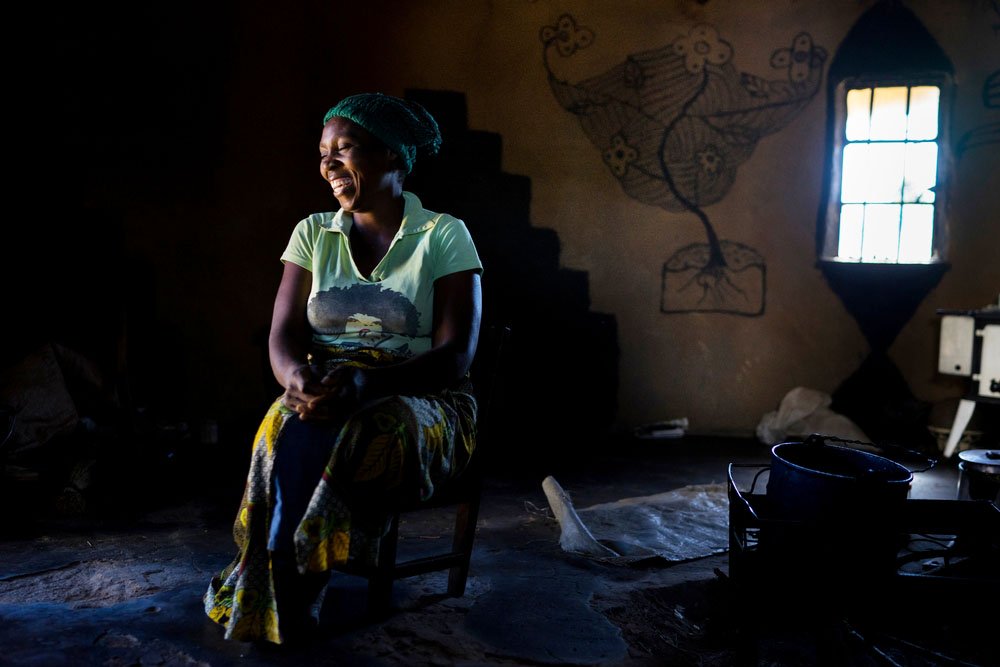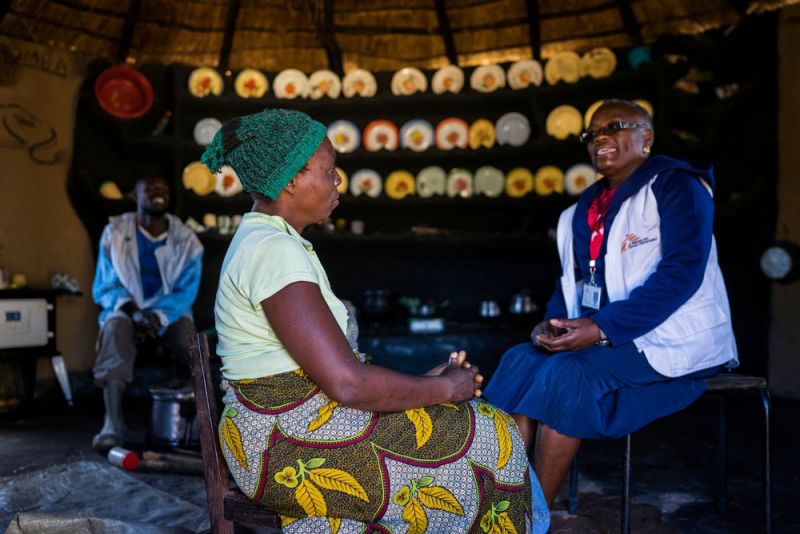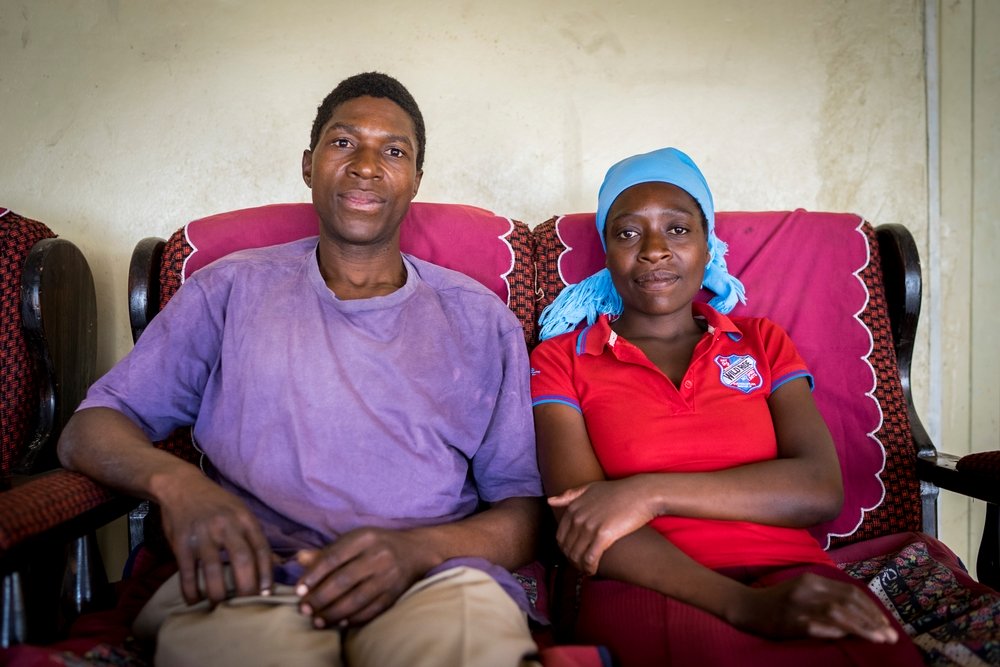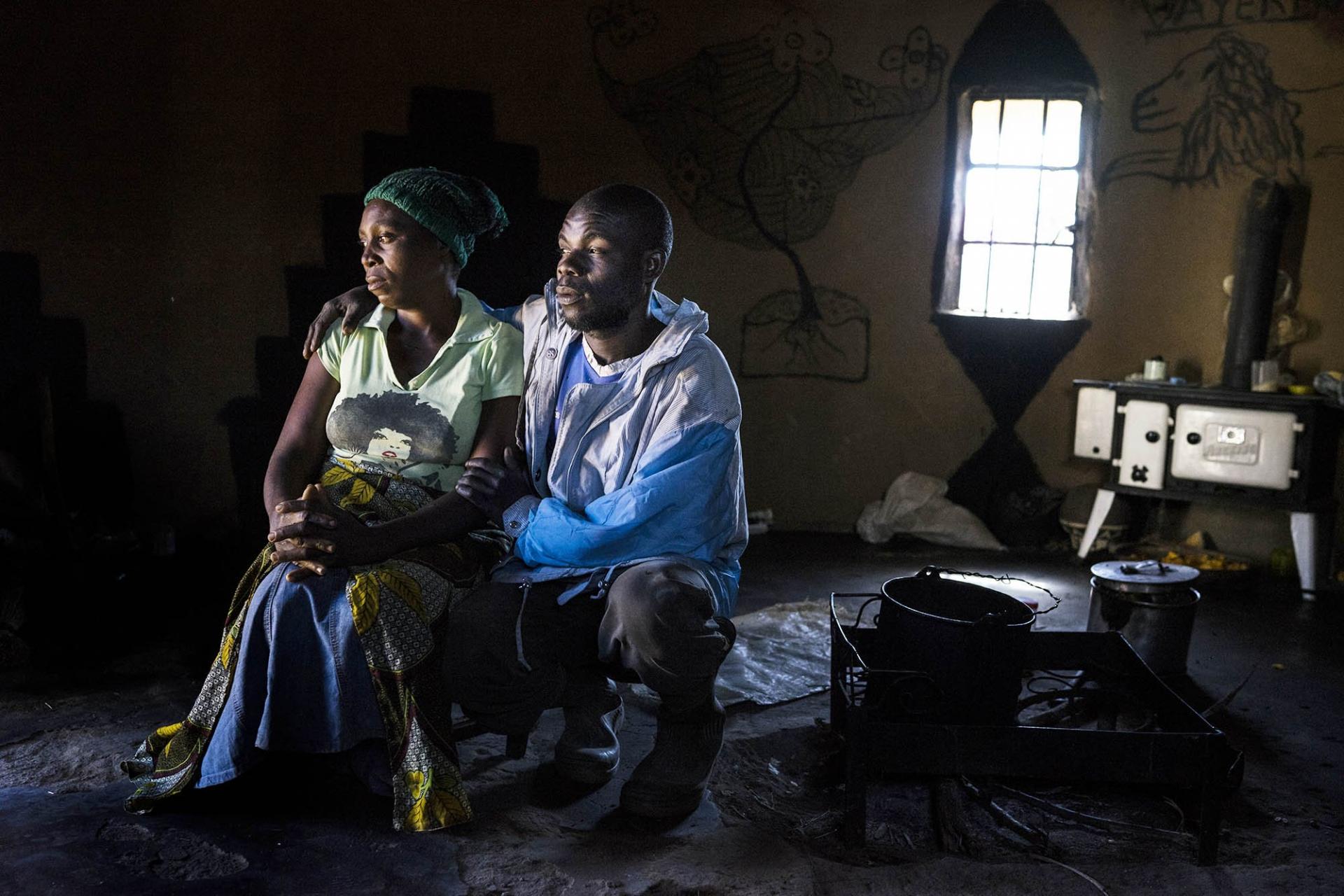Cases of cervical cancer are on the rise worldwide, but particularly in the developing world, where the disease is the leading cause of cancer death for women in many countries. In Zimbabwe, 5,000 new diagnoses are made and 1000 deaths occur each year.
This is influenced by high rates of HIV, which lowers immunity. Like many developing countries, the diagnosis and treatment of cancer in Zimbabwe is extremely limited, making prevention programmes even more critical.
“Cervical cancer is a very dehumanising cancer,” says Severine Caluwaerts, MSF obstetrician-gynaecologist. “You might bleed a lot, you might become incontinent or be in great pain. For an emergency organisation, this programme might seem unusual, but it’s tragic that we are losing women to preventable diseases like cervical cancer when such effective treatments now exist.”
"I lost my older sister to cervical cancer"
Beauty: “When I met Charles six years ago, I told him I was living with HIV and had three children, but he still wanted to marry me. We desperately wanted to have a child together.
Seven years ago, I lost my older sister to cervical cancer, and was worried it might happen to me as well. We only found out that she had cancer when it was too late and she had come home to die.

In September 2015, I had pain in my abdomen. I heard from a friend about the screening at Gutu rural hospital, so I went.
The test results showed I had lesions that couldn’t be treated at the local clinic. MSF took me to Newlands clinic in Harare and paid for the procedure. The nurses told me the results which recommended me to have my uterus removed, but I found out I was pregnant.
We both wanted it [a child], but my husband was torn because he didn’t want to lose me.
Throughout my pregnancy I had regular check-ups, and the doctor booked me for an elective caesarean to prevent any risks.
Our baby is two weeks old now, and we are both so happy. I’ve been advised to have another test for cervical cancer six weeks after my delivery. Now that we have a child, I’m fine with any course of treatment, even a hysterectomy.

My strong message is that every woman should get screened, there’s no shame in it. I would have stayed in the dark if I hadn’t been screened.”
Beauty, aged 36, Gutu, Zimbabwe, March 2017
CHARLES: “It wasn’t an easy decision, but we decided to have the baby, knowing the risks. I was still very worried. The nursing staff were very surprised that I went with her every time, and said we were a very loving couple. Men should encourage each and every programme that is supportive of women’s health. We benefit from these programmes too, because they save the lives of our families.”
Charles, Gutu, Zimbabwe, March 2017
Ngonidzashe: “I heard that this test could save lives”

“I live in Mahachi village with my husband, who’s an electrician. We have three children, a small field with tomatoes and a few hens. Both my husband and I are HIV-positive, but thankfully our children aren’t.
Despite being HIV positive, I was in good health. When I heard about the test to screen for cervical cancer at Gutu rural hospital, I volunteered, even though I wasn’t feeling any pain. I was excited when I heard that this test could save lives.
I listened to all the information before the test and the nurse explained every step during the screening. When they finished they showed me the cervical lesions which they said were more than 75% in my womb.
They said I was supposed to go to Harare, the capital, to get treatment and have LEEP [to cauterise the lesions] because it wasn’t possible to have it done in Gutu.
We didn’t have the money to go and I was very scared.
In February 2016, I got a call from MSF, who offered to cover all the costs. The MSF car picked me up and took me to Newlands clinic in Harare, where I had the procedure done. I was home by the evening.
They told me I didn’t have cancer and I was just so happy. In February this year, I went for a repeat screening and it was negative, meaning I have no lesions anymore. I will now go every year for the screening.”
Ngonidzashe, aged 28, Gutu, Zimbabwe, March 2017
